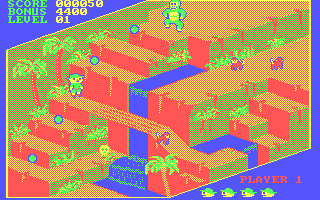IBM PC games
From Sega Retro

The original DOS-based IBM PC was released in 1981, and the technology behind it has been extended every year for nearly three decades to produce the Microsoft Windows machines of today. Sega released games for the DOS market in two waves, the first during the early 1980s where Sega published all releases themselves, and the second during the late 1980s and early 1990s where the publishing rights were held in the hands of companies such as Activision and U.S. Gold.
DOS-based computers were very popular for businesses during the 1980s due to higher resolution displays and more readily available word processing packages. They were originally far too expensive for use in the home, but as hardware prices dropped it was able to become a more competitive platform. Eventually the technology behind the IBM PC range would be adopted by other manufacturers, thus creating "IBM PC compatibles" that would fuel the success of the Microsoft Windows operating system.
Early Sega games were distributed as "PC Booter" games, which ran straight off a floppy disk as storage space was still very expensive. As the original IBM PC's graphics capabilities were not great, most games had to rely on the four colour CGA graphics cards of the era and would have to make use of the bulit in PC speaker (which still exists in computers today). Later games would use the EGA and VGA standards which would provide more colours, and would make use of Adlib and Soundblaster sound cards for higher quality sound.
DOS game production by Sega, like other computers of the time, was cancelled during the early 1990s as there was more money to be made on the successful Sega Mega Drive console. Sega would revisit the computer market when Microsoft Windows became popular, however.
Though in theory all DOS games should still run on modern computers (as Windows itself was DOS-based for the first few years), running these games, especially the earlier ones, may produce bad results. As early games such as Zaxxon do not have a hard-coded speed limit, chances are it will run far too fast on computers of today, which is why it is better to use an emulator such as DOSBox.
Subcategories
This category has the following 3 subcategories, out of 3 total.
Pages in category "IBM PC games"
The following 34 pages are in this category, out of 34 total.